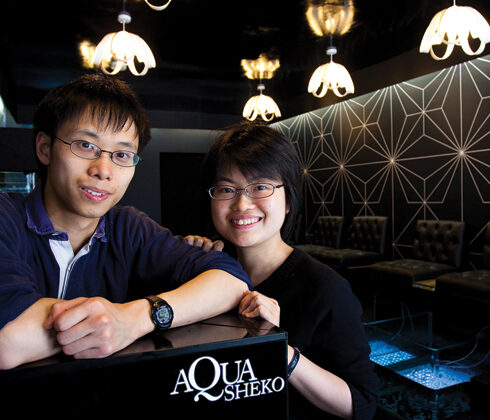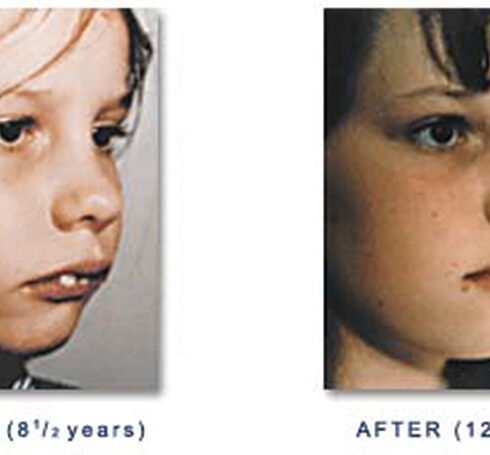How Does Panax Ginseng Extract In Hair Growth Serum Stimulate Hair Growth?
Panax ginseng extract has gained attention as a potential hair growth stimulant in recent years. This ancient herb, long revered in traditional medicine, contains active compounds called ginsenosides that may influence hair follicle health and growth cycles. Research suggests that ginsenosides can promote hair growth by increasing the number of dermal papilla cells and prolonging the anagen phase of hair growth.
Scientists have observed that ginseng extract can affect key cellular pathways involved in hair growth. It may help stimulate β-catenin signalling, which plays a crucial role in hair follicle development and cycling. Additionally, ginseng extract appears to modulate transforming growth factor-beta (TGF-β) levels, potentially delaying the catagen phase when hair growth naturally slows.
For those seeking natural solutions for thinning hair, ginseng-infused serums offer a promising option. When incorporated into hair care routines, these products may help improve hair density and thickness over time. Some users report seeing initial results within a few weeks, though individual experiences can vary. Those looking for a comprehensive approach might consider pairing ginseng serums with other hair-supporting products and Try Spartan root activator shampoo for men experiencing hair loss.
Key Takeaways
- Ginsenosides in Panax ginseng extract stimulate hair follicles and prolong the growth phase
- Ginseng-infused serums may improve hair density when used consistently
- Combining ginseng products with other hair care solutions can support overall hair health
Understanding the Role of Panax Ginseng in Hair Growth
Panax ginseng extract has shown promising effects on hair growth through various mechanisms. Its active compounds interact with hair follicles and influence the hair growth cycle.
Ginsenosides and Their Impact on Hair Follicles
Ginsenosides, the primary bioactive components in Panax ginseng, play a crucial role in stimulating hair growth. These saponins interact with dermal papilla cells, which are essential for hair follicle function. Ginsenosides promote protein synthesis and enhance the proliferation of keratinocytes, the cells responsible for hair shaft production.
Research indicates that ginsenosides may activate β-catenin pathways in dermal papilla cells. This activation is associated with increased hair follicle growth and development. The molecular mechanisms behind these effects involve the modulation of various signalling pathways that regulate hair growth.
The Hair Growth Cycle and Panax Ginseng’s Effects
Panax ginseng extract influences different phases of the hair growth cycle. It primarily promotes the transition from the telogen (resting) phase to the anagen (growth) phase. This telogen-to-anagen transition is crucial for initiating new hair growth.
Studies have shown that ginseng extract can:
- Extend the anagen phase
- Delay the onset of the catagen (regression) phase
- Shorten the telogen phase
These effects collectively contribute to increased hair growth and reduced hair loss. Ginseng’s impact on the hair cycle is particularly beneficial for individuals experiencing androgenic alopecia or other forms of hair thinning.
Comparing Panax Ginseng With Other Treatments
When compared to conventional hair growth treatments, Panax ginseng shows promising results. Studies suggest that ginseng extract may have similar mechanisms to minoxidil, a widely used hair growth medication. Both substances appear to stimulate hair follicles and promote anagen phase transition.
However, unlike finasteride, which targets hormonal factors in androgenic alopecia, ginseng works primarily through its effects on hair follicle cells and growth cycles. While ginseng has shown effectiveness in promoting hair growth, more research is needed to fully compare its efficacy to established treatments.
Red ginseng extract, a processed form of Panax ginseng, has demonstrated particular effectiveness in increasing hair follicle count and thickness. This makes it a potential alternative or complementary treatment for various types of alopecia, including alopecia areata.
The Scientific Evidence Behind Ginseng’s Efficacy
Research has revealed promising findings on Panax ginseng’s potential to stimulate hair growth. Studies have examined its effects on hair follicles, cellular pathways, and key growth factors.
Preclinical Studies and Clinical Trials
Preclinical studies using human dermal fibroblasts and hair follicle cells have shown positive results for ginseng extract. One study found that red ginseng extract promoted hair growth in cultured human hair follicles. The extract increased hair shaft length and stimulated hair matrix keratinocyte proliferation.
Animal trials have also demonstrated ginseng’s hair growth-promoting effects. Topical application of ginseng extract increased the number and size of hair follicles in mice. However, one study using athymic nude mice failed to show significant results compared to minoxidil.
Limited clinical trials in humans have produced mixed outcomes. Small-scale studies indicate ginseng may help improve hair density and thickness in some individuals with hair loss. Larger, long-term clinical trials are still needed to confirm efficacy.
Biochemical Mechanisms of Ginseng in Hair Regeneration
Ginseng’s hair growth effects stem from its bioactive compounds, particularly ginsenosides. These saponin compounds interact with various cellular pathways involved in hair follicle cycling and regeneration.
Key mechanisms include:
- Stimulation of dermal papilla cell proliferation
- Inhibition of apoptosis in hair follicle cells
- Modulation of growth factors like vascular endothelial growth factor (VEGF)
- Regulation of hair cycle-related proteins
Ginsenosides RC and RD have shown especially potent effects on hair growth in some studies. They appear to prolong the anagen (growth) phase of the hair cycle while delaying catagen (regression) onset.
Ginseng also exhibits antioxidant properties, helping to neutralize reactive oxygen species (ROS) that can damage hair follicles.
Panax Ginseng’s Interaction With Hair-Related Cellular Pathways
Ginseng influences several signalling pathways crucial for hair growth and cycling:
Wnt/β-catenin pathway: Ginseng activates this pathway, promoting hair follicle development and growth.
Shh/Gli pathway: Some ginsenosides upregulate Sonic hedgehog (Shh) signalling, stimulating hair follicle proliferation.
AKT/PKB pathway: Ginseng activates this pathway, enhancing cell survival and proliferation in hair follicles.
Ginseng also modulates key proteins and growth factors:
- Increases Bcl-2 (anti-apoptotic) expression
- Decreases TGF-β (growth inhibitor) levels
- Enhances EGF (growth promoter) signalling
- Upregulates matrix metalloproteinases (MMPs) involved in follicle remodelling
These interactions collectively support hair follicle health and stimulate growth.
Conclusion
Panax ginseng extract shows promise as an active ingredient in hair growth serums. Research indicates it can stimulate hair follicles and promote growth through mechanisms similar to minoxidil. Clinical studies have demonstrated positive effects on hair length and density with topical ginseng applications.
While more research is still needed, the available evidence suggests ginseng extract may be a valuable natural option for supporting healthy hair growth. Its ability to potentially enhance follicle function and prolong the anagen growth phase makes it an ingredient of interest for those seeking to improve hair thickness and fullness.
Photo by Paul Siewert on Unsplash












